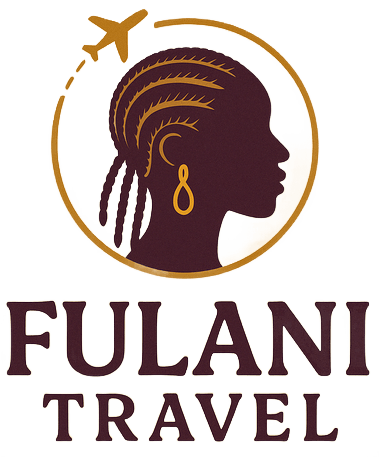How to Learn the Fulbe Language: Tips for Beginners and Language Enthusiasts
Journey into the heart of West and Central Africa by learning Fulfulde, a vibrant language spoken by millions across 20 countries! From basic greetings like “Jamm rekk” to exploring the rich cultural tapestry of the Fulbe people, this comprehensive guide offers a wealth of resources for every learning style. Discover free online courses, interactive apps, and invaluable tips for connecting with native speakers. Start your Fulfulde adventure today and unlock a world of cultural exchange and linguistic discovery!
Important information

- Fulfulde, also known as Fula, is spoken across roughly 20 West and Central African countries, with many mutually understandable dialects.
- Numerous free online resources, including courses, apps, and audiobooks, are available for beginners.
- Connecting with native speakers online and offline is crucial for improving fluency and cultural understanding.
- Learning basic greetings, polite phrases, family terms, numbers, and words for everyday objects helps establish a solid foundation.
- Immersing oneself in Fulani culture through music, films, literature, and community events enhances language acquisition.
Understanding the Fulbe Language
Fulfulde, the language of the Fulbe people, belongs to the Niger-Congo family’s Atlantic branch. Its numerous dialects span some 20 West and Central African countries, forming a dialect continuum. This means that even geographically distant dialects are often mutually understandable.
What is the Fulbe Language?
Fulfulde, also known as Fula, is the language of the Fulbe people, primarily cattle herders and farmers. This language is crucial to their culture, serving as their main form of communication. However, Fulfulde has a rich diversity of dialects, varying significantly across different regions.
Geographical Spread: Where is Fulbe Spoken?
Fulfulde, a crucial language in West and Central Africa, spans a wide region, including Nigeria, Senegal, Mali, Guinea, Cameroon, and Niger. Its diverse dialects reflect the varied Fulani communities, with location influencing pronunciation and vocabulary. This geographical reach underscores Fulfulde’s significance as a cornerstone of Fulbe cultural identity.
Getting Started with Fulbe Language Learning
Learning Fulbe is easier than you think. Many self-study resources offer great starting points, including free online courses with structured lessons, vocabulary-building apps, and audiobooks for pronunciation practice. Textbooks can help you with grammar, while podcasts offer convenient listening practice. YouTube videos can further supplement your learning. Fluency comes with interaction. Connect with native speakers through language exchange websites and social media groups to practice speaking and immerse yourself in the culture.
Self-Study Resources
- Free online courses with structured lessons,
- Vocabulary-building apps,
- Pronunciation-focused audiobooks.
Interactive Learning
- Language exchange websites,
- Social media groups,
- Connecting with native speakers.
Self-Instructional Resources for Fulfulde Learners
Numerous excellent self-study resources can help you learn Fulfulde. Textbooks provide structure and a comprehensive approach to grammar and vocabulary. Online courses offer flexibility, allowing you to learn at your own pace and schedule.
- Textbooks provide structure and a comprehensive approach to grammar and vocabulary.
- Online courses offer flexibility, allowing you to learn at your own pace and schedule.
- Mobile apps are ideal for learning on the go, providing bite-sized lessons and vocabulary practice.
Several resources can enhance your listening comprehension and cultural understanding. Audio resources, such as podcasts and audiobooks, expose you to natural spoken Fulfulde. Dictionaries and grammar guides offer support when you encounter unfamiliar words or grammatical concepts.
- Audio resources, such as podcasts and audiobooks, expose you to natural spoken Fulfulde.
- Dictionaries and grammar guides offer support when you encounter unfamiliar words or grammatical concepts.
- Ebooks provide digital convenience, allowing you to access learning materials anytime, anywhere.
Connecting with online communities offers valuable support and additional learning opportunities. Engaging with native speakers and fellow learners can enhance your understanding and provide a platform for practicing your skills. Cultural immersion through music and literature brings the language to life.
- Language learning apps present structured lessons and vocabulary practice, often incorporating interactive exercises and gamified elements.
- Online communities offer valuable support and additional learning opportunities, allowing you to connect with native speakers and fellow learners.
Exploring Fulfulde music, for instance, deepens cultural understanding and provides context for the language. Ultimately, the most effective resources depend on individual learning styles. Explore these options to discover what suits you best and embark on a successful language learning journey.
- Cultural immersion through music and literature brings the language to life, providing insights into the culture and traditions associated with Fulfulde.
Free Fula Courses and Materials
Learn Fula for free! We offer various learning materials, including four courses, four ebooks, and 52 audio files. Everything is available at no cost.
The Role of Audiobooks in Learning Fulfulde
Enhance your Fulfulde language learning with audiobooks. They offer invaluable listening practice and pronunciation refinement, complementing traditional methods like textbooks and online courses. Resources such as “An Introductory Guide To The Fula Language” are particularly helpful. Audiobooks expose learners to natural speech patterns, improving comprehension and fluency. This immersion helps grasp the language’s rhythm and significantly enhance overall Fulfulde language skills.
Building Fulfulde Vocabulary and Grammar
Learning Fulfulde involves several key steps.
Start with essential vocabulary. Focus on greetings like “jamm rekk” (peace only) and “tan woni” (how are you). Learn basic terms for family (mother, father, siblings), numbers (one, two, three), and everyday objects (water, food, house).
Expand your vocabulary. Include words for daily activities like eating, sleeping, and working. Organize these words into thematic lists such as colors, animals, and professions.
Master pronouns and verbs. Fulfulde uses personal pronouns like I, you, he/she/it, we, and they. Verbs change depending on the tense, aspect, and mood.
Concentrate on the present tense. Practice common verbs like “to be,” “to have,” and “to do.” This will help you construct correct sentences.
Practice grammar regularly. Focus on sentence structure, verb conjugation, and pronoun usage to reinforce grammatical rules. Start with simple sentences and gradually progress to more complex structures. Translate between Fulfulde and your native language. Utilize online tools and textbooks with Fulfulde exercises.
Essential Vocabulary Lists for Beginners
Embarking on a Fulfulde language journey? Start with fundamental greetings like “Jamm rekk” (peace only) and “Tan woni” (how are you?). These simple courtesies are invaluable for making a positive first impression. Politeness is essential, so learn “Noowal” (thank you) and “Hoore ma” (excuse me). A basic vocabulary is crucial, encompassing words for family, numbers, food, and everyday objects. This vocabulary empowers beginners to engage in daily conversations and establish a solid Fulfulde foundation. Consider these steps to begin:
Start with greetings. Learn “Jamm rekk” (peace only) and “Tan woni” (how are you?).
Master essential polite phrases. “Noowal” (thank you) and “Hoore ma” (excuse me) are key.
Build a basic vocabulary. Focus on words for family, numbers, food, and everyday objects.
Understanding Pronouns and Verb Conjugation in Fulfulde
Pronouns and verb conjugation are the cornerstones of Fulfulde sentences, essential for clear communication. Together, they ensure accuracy and add depth to the language.
Mastering these elements can be challenging, as verbs change based on tense and person. However, understanding them unlocks the richness of Fulfulde and allows for truly effective expression.
Grammar Exercises to Improve Language Competence
Grammar exercises are a great way to strengthen your Fulfulde skills, reinforcing essential rules and structures to boost overall competence. Learners thrive on structured practice like vocabulary drills and grammar exercises. These are readily available in:
- textbooks,
- online courses,
- workbooks.
These resources help language enthusiasts hone their skills and exemplify the principle that practice makes perfect.
Enhancing Fulfulde Language Skills
Learn a language the fun way with engaging lessons and lively conversations, opening doors to exciting new cultures. Interactive exercises make learning a joy. A language tutor provides personalized guidance, correcting your pronunciation and sharing valuable cultural insights. They structure lessons and offer helpful feedback. A mentor, conversely, offers distinct advantages, such as support and cultural exchange. Both mentors and tutors significantly enhance your language learning journey, accelerating your progress.
Language Practice through Engaging Lessons
Enhance your Fulfulde through various engaging methods.
Immerse yourself in the language and culture:
- join a conversation club,
- attend a cultural event,
- find a language partner,
- explore Fulfulde literature, films, and music.
Focus on structured practice:
- do grammar exercises and vocabulary drills,
- engage in writing practice,
- seek feedback from native speakers.
For beginners:
Practice conversations:
- connect with native speakers through language exchange meetups or online platforms,
- immerse yourself in Fulfulde music, films, and community groups.
Refine your pronunciation and fluency:
- record yourself speaking and compare it to native speakers,
- engage in role-playing to reinforce practical language use and build confidence.
Finding a Language Tutor or Language Mentor
Language Mentor
A language mentor offers personalized guidance and support, focusing on pronunciation, grammar, and conversational fluency. They provide valuable feedback, introduce cultural nuances, and help set achievable learning goals. Mentors are there to guide you through challenges and celebrate your successes.
Language Tutor
A language tutor delivers structured lessons targeting specific skills like verb tenses or vocabulary building. Through exercises, assessments, and clear explanations of grammar rules, tutors track your progress and correct errors. They also create interactive opportunities to practice what you’ve learned.
Cultural Context in Learning Fulfulde
Fulani culture offers a wealth of resources, from music and films to literature and storytelling, providing valuable insights into its richness and context for understanding the Fulfulde language. Engaging with these materials enhances language acquisition by connecting words and phrases to real-world situations and highlighting cultural practices. This immersive experience fosters a deeper appreciation for the language and reveals its cultural significance.
Exploring cultural expressions like:
- proverbs,
- idioms,
- ceremonies,
- social gatherings
helps learners grasp the cultural values and perspectives embedded within Fulfulde.
Active participation provides a comprehensive understanding of the language’s role in Fulani society.
Utilizing Cultural Resources for Linguistic Discovery
Immerse yourself in Fulani culture to truly grasp Fulfulde. Exploring their music, literature, and community events offers invaluable context, making language acquisition more effective. This cultural immersion also enhances communication, allowing you to connect more meaningfully and understand nuances often missed by others. Language learning transcends vocabulary; it encompasses cultural understanding. For instance, grasping cultural norms prevents misunderstandings and fosters genuine connections. Embrace the culture, and you’ll unlock the language.
Advanced Fulfulde Language Techniques
Fulfulde morphology explores the structure of words, analyzing elements like roots, prefixes, and suffixes. This analysis helps learners understand grammatical relationships and functions. Breedveld (1995) highlighted the importance of morphology in understanding Fulfulde.
Fulfulde Morphology
Focuses on the internal structure of words, breaking them down into their constituent parts, such as roots, prefixes, and suffixes. This structural analysis is essential for understanding how words are formed and how they relate to each other grammatically.
Fulfulde Dictionary
An essential tool for anyone learning Fulfulde. It provides not only definitions and pronunciations but also illustrative sentences that show how words are used in context. Using a dictionary can significantly expand your vocabulary and reveal subtle differences in meaning.
A recommended resource is Taylor’s 1932 “Fulfulde Dictionary,” which remains a valuable tool for Fulfulde language learners.
Understanding the Morphology of Fulfulde
Fulfulde’s morphology unveils the intricate ways words are formed. By dissecting words into morphemes, their smallest meaningful units, we unlock the language’s building blocks. For instance, “worɓe” (men) combines “wor-” (man) with the plural marker “-ɓe.” This understanding is crucial for advanced learners, enabling them to decipher new vocabulary and construct grammatically sound sentences. However, word formation varies depending on the word type. Nouns, verbs, and adjectives each adhere to unique patterns. Fulfulde nouns are categorized into distinct classes, each employing specific prefixes and suffixes. Moreover, verbs transform according to tense, aspect, and mood. Mastering these morphological rules enhances communication and fosters a deeper appreciation of the language.
Advantages of Using a Fulfulde Dictionary
A Fulfulde dictionary is invaluable for language learners, significantly expanding vocabulary and boosting reading comprehension. It clarifies word meanings with helpful usage examples, while also illuminating Fulfulde’s grammatical structures and subtle nuances. This resource is truly essential for mastering the language.
Connecting with the Fulani Community
Immersing yourself in the Fulani community offers a powerful way to learn Fulfulde and rapidly improve your conversational skills through direct interaction. Cultural exchange is key to understanding subtle language nuances. Participating in community events provides valuable context by demonstrating how language is used daily. Building relationships with native speakers offers personalized feedback and support throughout your learning journey, fostering a deeper appreciation for Fulani culture and traditions. These connections boost motivation and accelerate language acquisition, ultimately enabling genuine communication within the community.
Benefits of Immersion in the Fulani Community for Learning Fulfulde
- Rapid improvement of conversational skills through direct interaction.
- Understanding of subtle language nuances through cultural exchange.
- Valuable context of daily language usage by participating in community events.
Building Relationships with Native Speakers
- Personalized feedback and support throughout the learning journey.
- Deeper appreciation for Fulani culture and traditions.
- Boosted motivation and accelerated language acquisition.
How to Communicate Effectively in Fulfulde
Engage with native speakers to truly master conversational Fulfulde. Language exchange platforms can connect you with partners for practice. Speaking phrases aloud and recording yourself are excellent techniques. Listen to your recordings to pinpoint areas for improvement. Language learning apps offer additional support. Immerse yourself in the Fulfulde culture through music, films, and local community events. This immersion will significantly enhance your comprehension and fluency. Here’s a structured approach:
Connect with native speakers through language exchange platforms to find practice partners.
Practice speaking by saying phrases aloud and recording yourself. Then, listen to your recordings to identify areas for improvement.
Use language learning apps for additional support.
Immerse yourself in Fulfulde culture through music, films, and local community events to enhance comprehension and fluency.
Traveling and Making Connections in Fulfulde-speaking Regions
Experiencing the Fulfulde language firsthand in a Fulfulde-speaking region dramatically accelerates learning. Engaging with native speakers in conversational Fulfulde fosters a deeper cultural understanding. This immersive environment allows you to apply vocabulary and grammar skills practically, speeding up fluency. It also cultivates a deeper appreciation for the language and culture.

















